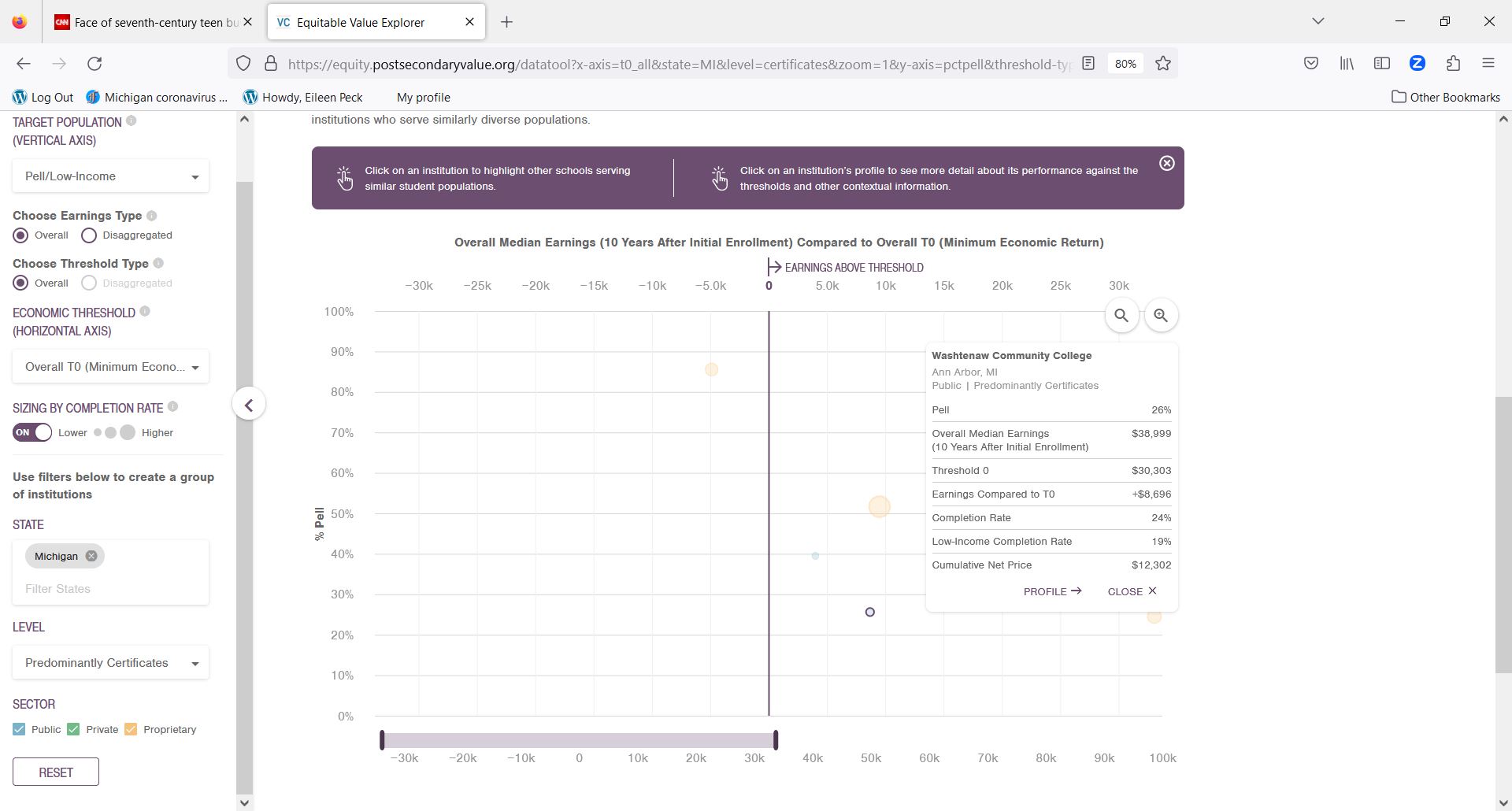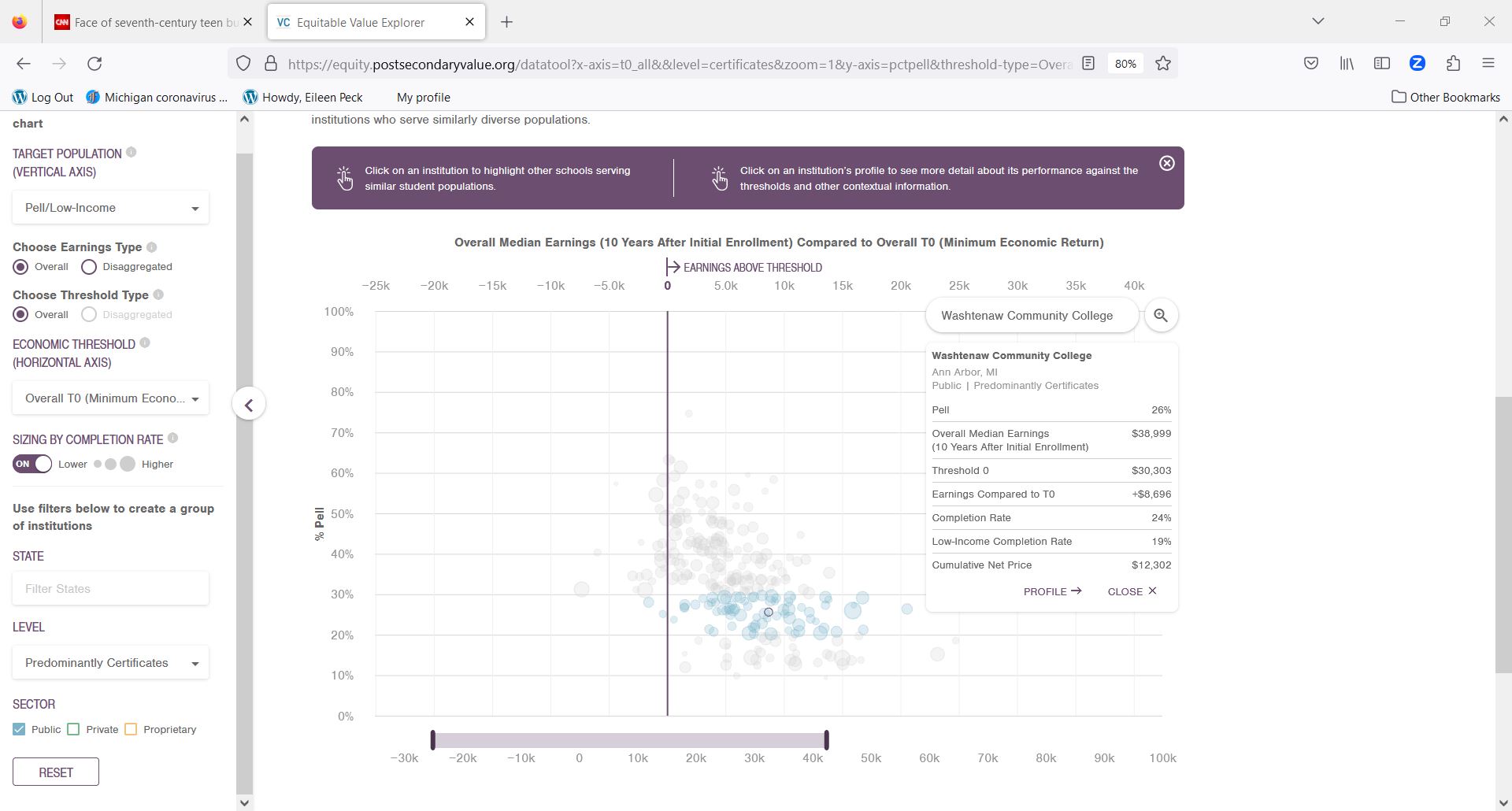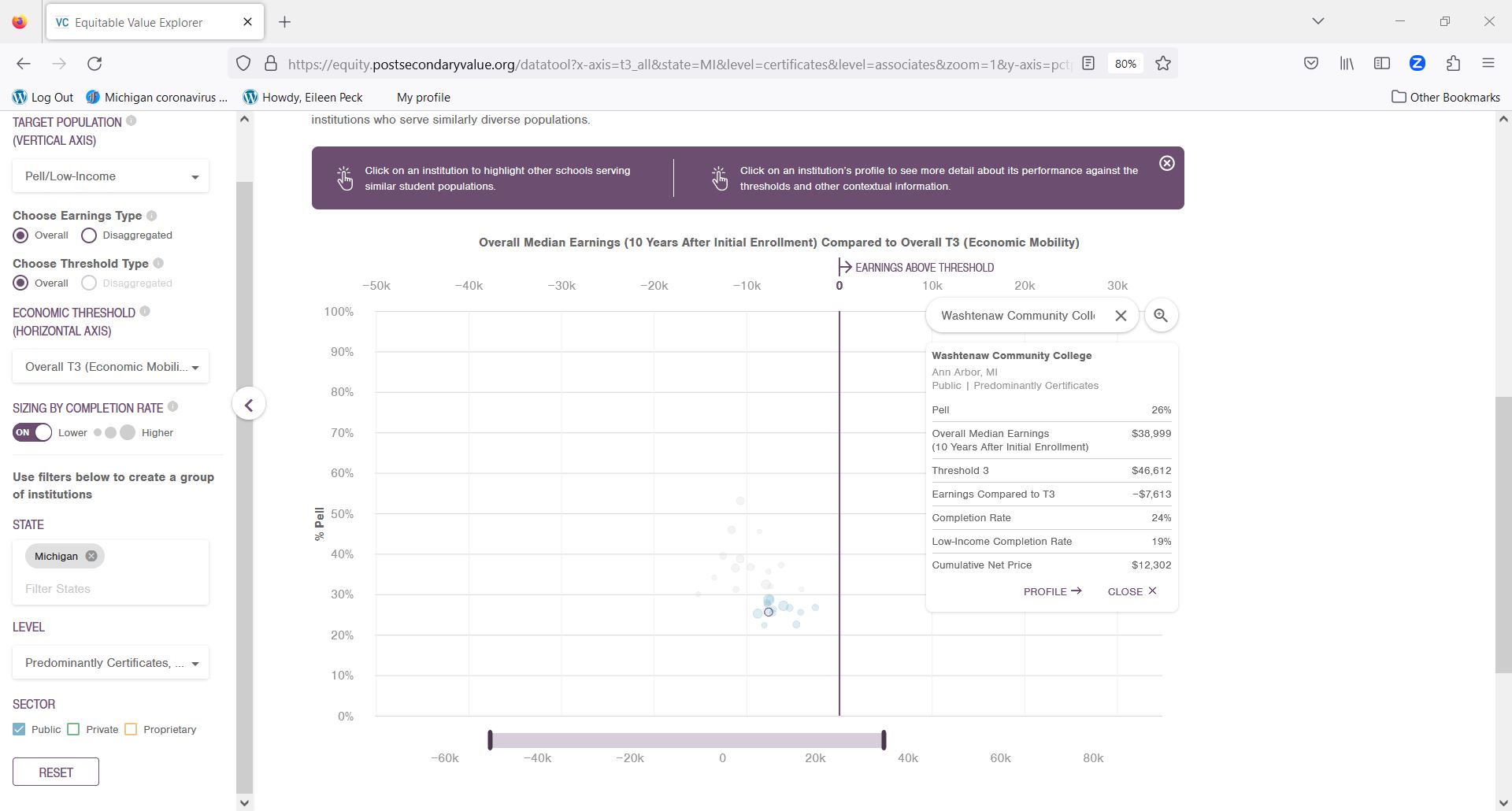For the last couple of days, I have written about the economic value data presented by the Institute for Higher Education Policy. The data attempt to quantify the value of a degree from a specific institution. The data raise a lot of questions, including ones about the viability of Washtenaw Community College’s “certificate strategy.”
WCC issues so many certificates that it is no longer considered a two-year school by the Department of Education. If the strategy of encouraging students to earn a short-term certificate instead of an associate degree is worthwhile to the students, their earnings after graduation should reflect that.
In WCC’s case, WCC was one of two only community colleges in Michigan to pursue the certificate strategy. The other, Bay Mills Community College, is a tribal college in Brimley. The screenshot below shows all the certificate schools in Michigan. (There are only 5.) If WCC is the only traditional community college that’s using the certificate strategy, there’s something wrong with it. The size of the dot on the chart signifies the institution’s graduation rate. Graduates of two of the three private certificate schools substantially out-earn WCC graduates 10 years after graduation. (Right click to open/expand the image in a new tab.)

Comparing WCC to all public certificate schools in the United States, WCC finds itself in the middle of the pack. I’m not saying that certificate programs can’t be done well. But most certificate programs at public institutions won’t make anyone rich anytime soon, especially as stand-alone credentials.

The next capture shows the real long-term damage. This is the economic mobility that all Michigan community colleges offer, regardless of the predominant credential they issue. None of them offer positive economic mobility. WCC is in the middle of the pack again, so WCC hasn’t positioned itself to be “least worst” by issuing certificates in lieu of degrees.

WCC’s certificate strategy should be re-evaluated
I wrote about economic mobility and how certificates fail to deliver it in a big way yesterday, but here’s the picture. WCC has a relatively small completion rate – just 24%. One out of four students actually completes a credential. Completion rates for those WCC students who are Pell-eligible are even worse (19%). Fewer than one out of five. For an institution that’s supposed to lift people out of poverty, it lifts very few people to begin with and doesn’t lift them high enough to help them even 10 years down the road.
So, the question is: who thinks this is a valuable strategy worth pursuing? (Especially pursuing to the point of reclassification by the Department of Education?) Certificates don’t produce significant income upon completion, nor do they stand a relatively gentle test of time. They don’t help the students who earn them, or the employers who hire those students, so why are we doing this? To game some numbers? When the State of Michigan is actively promoting the need for its residents to achieve 60 college credits, why is WCC heavily promoting a pathway to do less?
Any of these would be better strategies:
- Improve the earning potential of existing degree programs
- Drop degree programs that have a low earning potential
- Add new high-value, high-demand degree programs, which means hiring more full-time instructors
- Offer modified schedules – like 8-week classes and weekend intensive classes
- Improve completion rates
- Open certificate programs only to those who already have a degree
- Re-engage students who have “stopped out”
As-is, WCC’s insistence on issuing certificates in place of degrees waters down the value of higher education for students, employers, and the community. It’s not what Washtenaw County taxpayers envisioned when we agreed to fund WCC. If the justification for WCC’s certificate strategy is “It’s better than nothing,” these numbers show definitively that it’s not.
Photo Credit: Martin Ringlein , via Flickr



















